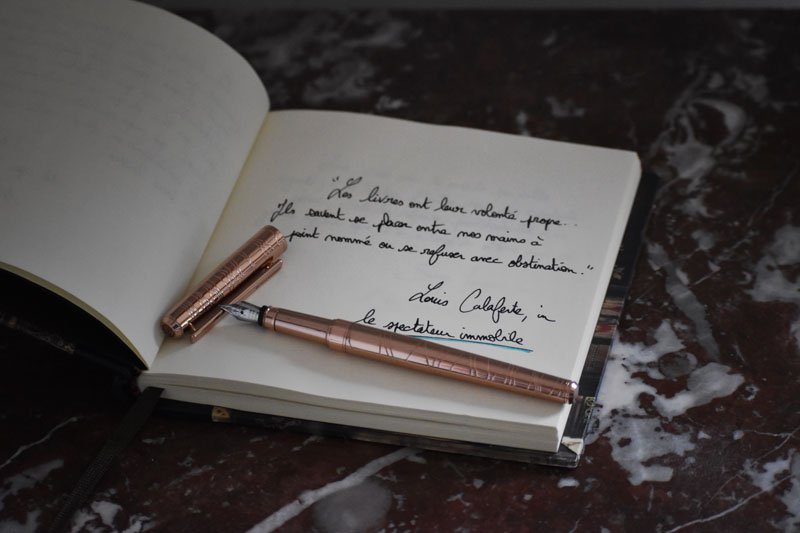La Venelle côté Jardin | Bibliotherapy
Bibliotherapy
"Glow(s)
A brief history of bibliotherapy
If we know the maxim "Know thyself" inscribed at the entrance to the temple of Delphi, we know less of the one that adorned the library of Thebes, in Ancient Greece:
"The medicinal chest of the soul."
Already present around the first fires of our ancestors, bibliotherapy, care through books (and therefore, by extension, through stories) has a history between the lines, hushed, discreet, but oh so powerful.
Traces of it can be found over the centuries: in the 15th century, Christine de Pizan invited people to spend hours reading to help them cope with bereavement; in the 19th century, some literary prescriptions appeared in the practice of certain doctors; and in the early 20th century, Proust, in his essay Sur la lecture, aestheticized its psychotherapeutic dimension.
However, it was not until the shock of the First World War that the word "bibliotherapy" truly emerged, through Sadie Peterson Delaney, head librarian of a veterans' hospital in the United States, who witnessed first-hand the therapeutic effects of "personalized" reading at the bedside of veterans...
Originating in the Anglo-Saxon world, bibliotherapy was for a long time reserved for health practitioners, led by psychologists and doctors. At the time, it was mainly a prescription for reading material, similar to a prescription for medication.
Bibliotherapy only arrived very recently (1960s) in the French-speaking world, and was never far from the studies and reports relaying the benefits of reading fiction, and the need for "cultural health" (see the cultural malnutrition report produced by psychologist and psychoanalyst Sophie Marinopoulos in 2018, at the request of the French Ministry of Culture).
Today, while the "therapy" part of the word can be intimidating, the fact remains that the discipline tends first and foremost to share texts rather than prescribe them, transmitting their sensory character through creative workshops, cultural mediation and read-alouds.
"Reading is always acting on the world ,
Lire pour relier, Régine Detambel, Actes Sud, 2023
For whom?
for everyone, adults, children, teenagers, seniors
for individuals, couples or families
Why?
to get through a particular stage of life (search for meaning, bereavement, break-up(s), blockages, burn-out, communication problems, etc.).
for assistance with a life story project
to reconnect with reading and/or writing
to (re)learn how to project yourself, allow yourself to dream and desire
to allow yourself to discover your own zone of creative genius
to open up possibilities
to take this little path or find your own
How does an individual session work?
You will be welcomed by Typhaine in an intimate setting where you can tell her about the moment you are going through, or about your desires and/or needs. At the end of this first exchange (1h15), Typhaine will give you a small notebook that will serve as a link between the proposed sessions.
A second meeting is scheduled, the content and form of which will have been thought out and prepared in response to what you have presented. The content and form will have been thought out and prepared in response to what you've presented. It could be a writing proposal, a reading aloud, a shared reading, a sensory stroll through words, etc.
Neither a psychologist nor a psychotherapist, Typhaine's sole purpose is to share the therapeutic effects of texts and books with you, in a privileged setting, and to help you imagine creative moments in which to take care of your cultural and sensory health, to accompany the stages of your life, or simply to help you re-invest quality time in yourself.


